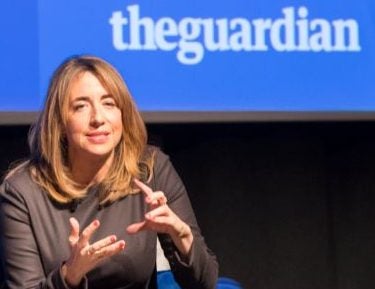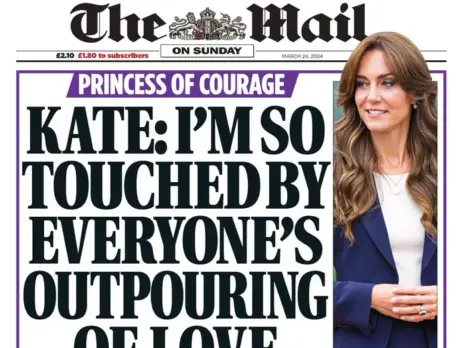
Guardian editor Kath Viner has said the newspaper will print in tabloid size from 15 January, dropping its existing Berliner proportions.
She said while there would be a few “surprises” the Guardian would be largely the same in the new, smaller format. “We have got the same amount of journalism,” she told the BBC Media Show.
“The cost-savings are all in production and printing processes rather than the journalism.
“I think when you make a big change like that you want to keep quite a lot the same so loyal readers aren’t too discomforted but at the same time you want to throw in some surprises and do some improvements and make decisions about every little bit really.
“I think the role of a newspaper in people’s lives is changing all the time. The role of a tangible, physical object in a digital world is really interesting to think about what’s that for?
“So maybe it’s more explanatory, maybe it’s more ‘keepable’, maybe it’s more ‘visual-beautiful’ – that’s the way we’re thinking about it.”
The Guardian invested £80m in Berliner-size printing presses in 2005. These will now be sold off and the printing site closed.
Viner also told the BBC that she thought a competition watchdog investigation into Facebook and Google’s commercial dominance would be a “good idea”.
Asked “would you like to see new regulations to control their behaviour or diminish their size?” Viner said: “I think there would be no harm in a CMA [Competition and Markets Authority] investigation into that yes.” She added: “I think that would be a good idea.”
In a recent speech to Guardian supporters, Viner said the current business model supporting journalism was “collapsing” as Facebook and Google “swallow digital advertising”.
The Duopoly, as the web giants are collectively known, is already taking the lion’s share of new digital advertising revenue and is forecast to take 71 per cent of all UK digital advertising money by 2020.
Asked if she thought Facebook and Google were “too powerful”, Viner said: “I think they probably are yes. Their commercial dominance doesn’t leave much room for anybody else.
“The bit that I’m most interested in is what that’s doing to public space – [the] public sphere – in particular.
“I think particularly with Facebook and the News Feed which homogenises all content, whether it’s good journalism from transparently funded sources or fake news or propaganda or something invented, it all looks the same on your phone and I think we’re seeing the effects of it all around, particularly in America.”
Viner said the Guardian, which made an operating loss of £62.5m last year, was on track to lose £25m this year and break even the following year, which she said would be a “big achievement”, adding: “If we get our finances in order that means you can do really great journalism.”
Viner said a mixture of cuts and new revenues had helped turn the Guardian’s finances around.
“We reinvented the business model so it was around reader revenues, advertising is dropping so to replace that with reader revenues particularly around voluntary contributions. And that’s been incredibly effective.
“I think it surprised a lot of people, a lot of people thought we should just put up a paywall or that no-one would ever give money voluntarily, but I think it caught the mood of the times and people really want to support the mission of the Guardian.”
The newspaper has lost 300 staff in total, including 100 editorial staff, in voluntary redundancies over the last couple of years.
Defending the cuts, Viner said: “I just think it’s best not to lose money at an operating level. We have got £1bn in the bank, but that’s to keep the Guardian going in perpetuity and you never know what’s going to happen in media that’s going to challenge newspapers.”
She told the BBC yesterday that print revenues made up just over half of the Guardian’s revenues, with digital “increasing dramatically” – up 15 per cent last year – and expected to overtake print at some point.
Email pged@pressgazette.co.uk to point out mistakes, provide story tips or send in a letter for publication on our "Letters Page" blog







